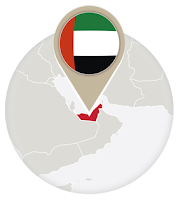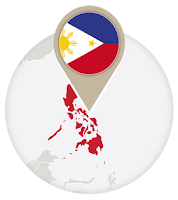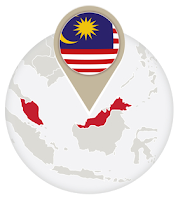Policy
their legislation today could be yours tomorrow
 The Law Ministry and Intellectual Property Office of Singapore (IPOS) has released a consultation paper in an effort to collect feedback regarding proposed revisions to its copyright laws. A Ministry statement acknowledged, “Technological developments in the past decade have led to immense changes in how copyrighted works are created, distributed, accessed, and used…This review seeks to ensure our copyright regime continues to provide an environment that benefits both creators and users.” Although VPN usage is not currently illegal in Singapore, this legislation could change that.
The Law Ministry and Intellectual Property Office of Singapore (IPOS) has released a consultation paper in an effort to collect feedback regarding proposed revisions to its copyright laws. A Ministry statement acknowledged, “Technological developments in the past decade have led to immense changes in how copyrighted works are created, distributed, accessed, and used…This review seeks to ensure our copyright regime continues to provide an environment that benefits both creators and users.” Although VPN usage is not currently illegal in Singapore, this legislation could change that. 
Chinese policy and foreign companies have a history of not getting along, so China has decided to take a new approach: the government invited technology companies such as Microsoft, Intel, Cisco and IBM to join in the process of drafting cybersecurity standards that will impact their businesses. What remains to be seen is how actively these foreign entities will be allowed to contribute to the conversation.
Privacy, Surveillance and Censorship
government isn't always on your side

Award-winning human rights activist Ahmed Mansoor recently received a text from an unknown number reading, “New secrets about torture of Emiratis in state prisons” that included a link. Had he clicked on it, he would have become the United Arab Emirates’ latest victim of a Pegasus spyware attack and given the government access to his phone conversations, texts, emails, contacts and camera. In response, Apple has issued a patch for the zero-day vulnerability that left Mansoor’s iPhone open to attack.
Research and Initiatives
making your world a more cybersecure place
 United Arab Emirates-based Smartworld plans to launch the Middle East’s first Cyber Security Center. Said Smartworld chairman Dr. Saeed Al Dhaheri, “Smartworld is proud to partner with The Kernal for this unique initiative, which will cater to the rapidly-rising demand for cyber security and local talent in this area. With this initiative we reaffirm our commitment to support the UAE leadership’s vision to excel in every sphere.” The UAE is one of the world’s most targeted countries for cyberattacks and, specifically, spear phishing.
United Arab Emirates-based Smartworld plans to launch the Middle East’s first Cyber Security Center. Said Smartworld chairman Dr. Saeed Al Dhaheri, “Smartworld is proud to partner with The Kernal for this unique initiative, which will cater to the rapidly-rising demand for cyber security and local talent in this area. With this initiative we reaffirm our commitment to support the UAE leadership’s vision to excel in every sphere.” The UAE is one of the world’s most targeted countries for cyberattacks and, specifically, spear phishing.
Cyberattacks
the threats we all face

Russian intelligence is suspected of launching cyberattacks against American reporters at the New York Times and other news organizations and also against organizations affiliated with the United States Democratic Party. The U.S. Federal Bureau of Investigation (FBI) has thus far declined to comment.
Looking Back
a new glimpse at old alerts
Previously, we reported on Singapore’s policy, beginning May 2017, to prevent public employees from accessing the internet at work. Since then, the decision to cut off the internet has been labeled extreme, excessive and even regrettable. In its defense, the government admits it is simply unable to otherwise secure its sensitive data.
All images credit of BOLDG/Shutterstock.com.
Want more emerging economy cyber alerts? Read on!
- Digital Divide: Emerging Economy Cyber Alerts - August 24, 2016
- Digital Divide: Emerging Economy Cyber Alerts - August 16, 2016
- Digital Divide: Emerging Economy Cyber Alerts - August 9, 2016
Want emerging economy cyber alerts sent to your inbox? Sign up for our weekly newsletter ("Security Tips and News" at bottom of page).
Have valuable insight to share from your part of the world? Write for us!
SumRando Cybersecurity is a Mauritius-based VPN, Web Proxy and Secure Messenger provider.
Surf secure and stay Rando!





































